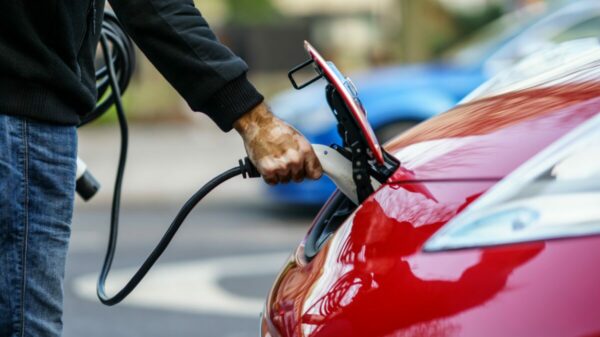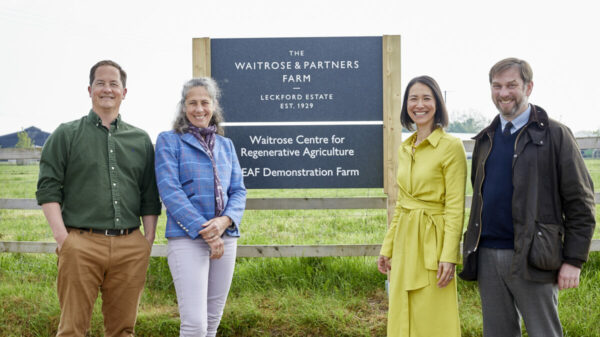It’s been a rough ride, but the High Court has finally ruled that Sadiq Khan will be permitted to expand the Ultra Low Emission Zone (Ulez) to outer London boroughs, after five Conservative-led councils raised a case against the mayor and challenged his policy.
Sadiq Khan has said the landmark decision is “good news, as it means we can proceed with cleaning up the air in outer London” – but the move to charge drivers up to £12.50 for more polluting vehicles is still being branded as “unfair” by a number of councils.
Labour leader Kier Starmer called for reflection on the scheme earlier this week, emphasising what needed to be done to support people looking to buy or lease less polluting vehicles.
Campaigners on both sides of the argument have been vocal, with opponents of the scheme saying that it is unfair on working families and small businesses and green activists saying it is needed now more than ever to deal with London’s pollution problem.
Since today’s decision was announced, environmental groups including the RSPB and National Trust have warned prime minister Rishi Sunak that they will mobilise their members and call for protests if green policies continue to come under fire.
So what exactly makes this particular green issue such a thorny one?
That byelection: How Uxbridge brought Ulez back on the agenda
As the results of a hard-won and much-anticipated byelection for Boris Johnson’s old constituency were announced, the newly-elected Conservative MP for Uxbridge and South Ruislip Steve Tuckwell took to the stage to rub salt in the wound, stating that “Sadiq Khan has lost Labour this election” because of his “damaging and costly Ulez policy”.
He continued: “The pundits expected Labour to win big here, but our community came together and I am thankful to them and the hundreds of activists that came out to deliver this message.”
“This wasn’t the campaign Labour expected and Kier Starmer and his mayor Sadiq Khan needs to sit up and listen to the Uxbridge and South Ruislip residents”.
The Ulez policy was first proposed by Boris Johnson in 2013 when he was Conservative mayor and was later implemented in central London by Sadiq Khan from 2019.
The policy is due to be expanded across London boroughs, including outer London boroughs like Hillingdon, from 29 August – but the move has been met with opposition from critics who say that it will impact working families, sole traders and people with small business who need to use vehicles for work.
How did the Labour Party react?
Speaking to Sky News last week, Labour’s deputy leader Angela Rayner said the party knew it was going to “be a stretch” to win Uxbridge, adding that “obviously” the local issue around the Ulez charge had contributed to the loss.
Kier Starmer also blamed Ulez for the byelection result, saying it was “too early” to decide what to do next but called for reflection.
“You must have been disappointed to have lost in Uxbridge?”
Deputy Labour Leader Angela Rayner MP says the party “knew it was going to be a stretch”, adding the ULEZ charge and scrappage scheme issues locally played a part.
Politics Hub 👉 https://t.co/PAiZ4D1jU3
📺 Sky 501 pic.twitter.com/WRXTIWMwCr
— Sky News (@SkyNews) July 21, 2023
Subscribe to Sustainability Beat for free
Sign up here to get the latest sustainability news sent straight to your inbox each morning
Why low emission zones have a heated history
London is – unsurprisingly – one of the most polluted cities in the UK. With most emissions of harmful nitrogen dioxide being due to vehicle pollution, the logic behind introducing such a levy also seems clear.
Areas just next to and around the North Circular and South Circular, where Ulez is expanding, are particularly heavily polluted.
One story in particular made the case for reducing vehicle emissions in the city seem clear; ten years ago nine-year-old Ella-Addo-Kissi-Debrah – who lived near the South Circular Road in Lewisham – died following an asthma attack.
She has since become the first person to have air pollution listed on her death certificate.
“Cleaning up our air – starting with heavily polluting diesel cars – will be a crucial step to freeing up hospital beds in the NHS and improving Londoners’ health.” #Asthma #AirPollution #DitchDiesel https://t.co/8vw7rff8vz
— Mums For Lungs (@MumsForLungs) July 13, 2023
So why is Ulez so divisive? In short; money. Councils like Bexley, Bromley, Harrow, Surrey County Council and (unsurprisingly) Hillingdon challenged the mayor’s proposal because they felt the proposed scrappage scheme was not adequately consulted on.
They also disputed the lack of cost-benefit analysis and said that there has not been enough discussion.
Data released by The Society of Motor Manufacturers to the BBC under an FOI request highlighted that as many as one in six cars registered in Outer London do not meet Ulez standards and will face the charge.
In the middle of this highly political debate – which risks being painted as between people with small businesses and families who can’t afford a less polluting car, and those who can afford an electric car and live in an areas like Camden or Westminster with access to many charging points – it’s clear that one group of people have been especially at risk of being let down: London’s poorest, who mainly work service jobs to which they take public transport, and live in the high density and highly polluted areas adjoining the big grey road next to the outer London locations in question.
Whether or not you agree that there’s appropriate scrappage or investment to help people purchase cleaner, greener vehicles, it’s not hard to see why Khan is so adamant about the policy, and even clearer to note that something needs to be done.
BREAKING: Mayor of London Sadiq Khan doubles down on the expansion of the city’s controversial ULEZ charge, after disappointing result in Uxbridge.
Politics Hub 👉 https://t.co/PAiZ4D1jU3
📺 Sky 501, Virgin 602, Freeview 233 and YouTube pic.twitter.com/F0wLJMKB00
— Sky News (@SkyNews) July 21, 2023















